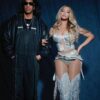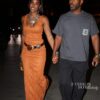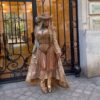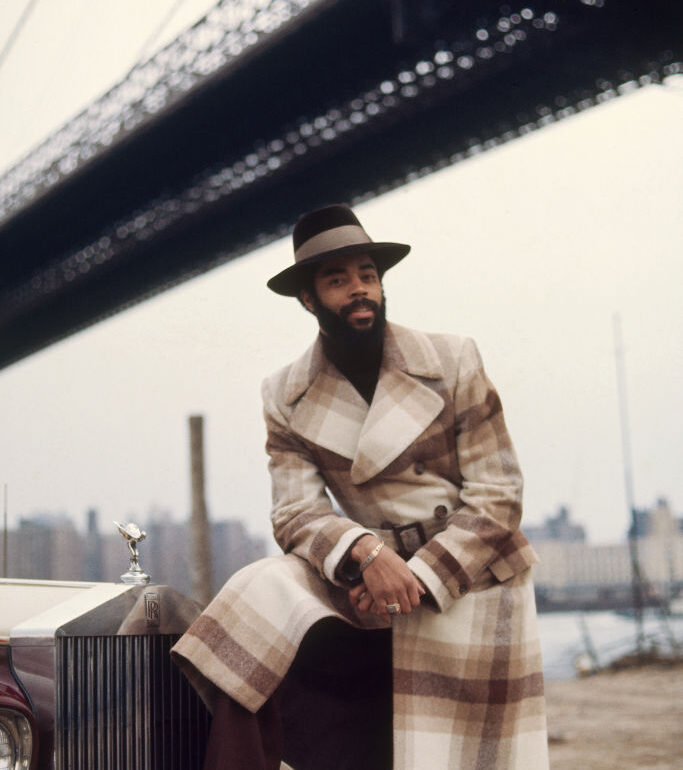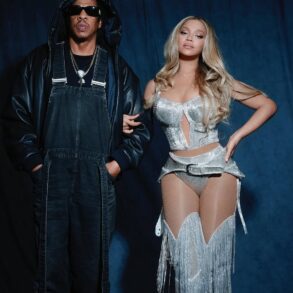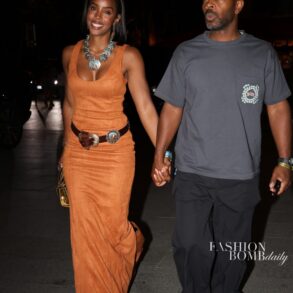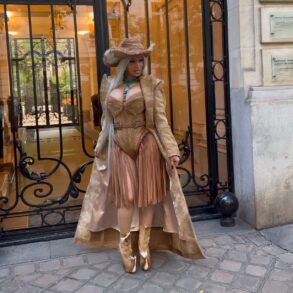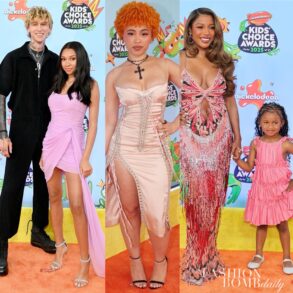“Damn, I swear sports and music are so synonymous/Cause we want to be them, and they want to be us.”
Ok, bear with me on the Drake lyrics, but if one needed further proof of hip-hop’s far-reaching impact on culture, look no further than the NBA. As two cultures that often inform and interact with one another, rappers wanting to be ballers (I see you, J.Cole) and ballers wanting to be rappers through the standard medium of fashion is a common narrative. But, thanks to the rise of NBA tunnel fits, nobody would have expected that, instead, NBA players would have pushed way past the narrative of NBA fashion emulating hip-hop and become global fashion icons in their own right.
The clearest early influences between hip-hop fashion and NBA fashion came from Michael Jordan and Allen Iverson. While the Jordan Brand line of sneakers and apparel became a shorthand status symbol of streetwear and hip-hop culture, Iverson, a tattooed, corn-rowed star player for the Philadelphia 76ers, drew the ire of then-league commissioner David Stern. Iverson often sat courtside or showed up to games in baggy, oversized sweatsuits, jeans, T-shirts, and fitted baseball caps, as was par for the course in hip-hop trends.
In 2005, Stern implemented a mandatory dress code for the NBA, requiring all players to dress in “business or conservative attire” when representing the NBA in any official capacity.
That jump-started a new era of athlete style, as NBA players struggled to fit in with the new dress code, ultimately giving rise to the next generation of stylish athletes, who learned the rules well enough to know how to break them.
If it weren’t for that dress code, NBA fashion might still be flying under the radar. It’s like Stern’s rules threw down the gauntlet, challenging players and fans to see the fashion potential simmering beneath those jerseys. It wasn’t just about restricting what players wore; it was a nudge to pay attention, to realize there was a style scene brewing in the NBA that had to be acknowledged.
When compared to other sports, NBA players are few and very recognizable. Celebrities can sit courtside, just a loose ball away from seeing a player dive on them before it goes out of bounds. Tunnel fits have become the new personal runway show for each and every game. Other sports like F1 and football are trying to replicate this trend, but the true original will always be the NBA tunnel fits.
Now, NBA players have figured out what that short walk from the team bus to the locker room can do to them off the court, and the sky is the limit.
If you want to stand out as an NBA payer now, regardless of how many minutes you play or stats you put up a night, you need to come with a wardrobe.
The Evolution Of Tunnel Fits with the People Behind LeagueFits
Ian Pierno, the man behind LeagueFits, the most respected platform covering NBA tunnel fits, told Highsnobiety: “I think it started with Russell Westbrook and Nick Young embracing high fashion, and now it’s going the other way. That’s just going to grow more and more and more.” Pierno continued, “Basketball players weren’t going to fashion week five or six years ago, except maybe Dwyane Wade and Russell Westbrook, but that was it. Now, everyone goes, everyone’s in Paris, everyone’s in Milan, and it’s starting to show.”
The ramifications of NBA players embracing fashion past the narrative of wanting to be rappers have had a huge impact on fashion marketing.
The highly marketable success of the tunnel fits and the consistent increase in fashion collaborations has drawn the attention of fashion houses worldwide and given way to new personal branding horizons for athletes.
Brands are also embracing and taking inspiration from basketball instead of it just being the other way around.
Ian Pierno
In an industry where professional careers can be unpredictably short and volatile, establishing a strong fashion presence offers players a valuable avenue for maintaining relevance and financial stability, even after their time on the court has ended.
LeagueFits: The Platform To Follow NBA Tunnel Fits
Back in 2018, LeagueFits was initially launched as an Instagram page that now boasts a following of over a million and stands as the ultimate online hub for showcasing the off-court sartorial elegance of NBA players.
This page captures the brief yet iconic and highly lucrative journey from the team bus to the locker room. “LeagueFits is just as much a basketball-style page as it just a dope aesthetics page.” Ian Pierno told Highsnobiety.
Thanks to Ian and Slam Magazine, LeagueFits personifies how tunnel fits have become such a wide-reaching and all-influencing marketing phenomenon. Ian explained why it worked: “LeagueFits became something that anyone could follow, and it wasn’t daunting because you didn’t feel like you had to know the ins and outs of the fashion world. You could just see and appreciate things that were either really cool or really ridiculous, which we see all the time.”
As for tunnel fits’ impact on marketing fashion brands, Ian has seen first-hand how quickly brands have grown: “A lot of smaller brands have used NBA players to grow their brands. I’ve seen so many brands blow up just because they’ve suited basketball players.”
In a world where sports and fashion marketing have caught up to the reality of how influential tunnel fits are, following the style evolution of basketball players is now necessary, and LeagueFits has become an indispensable carousel of men’s and women’s fashion.
Doing Fashion Business With The NBA
Doing business with the NBA right now is a no-brainer. The growing global popularity of the NBA and its players has led to a massive increase in the league’s turnover. According to Forbes’ classic annual survey, less than four years ago, the price to get a team into the NBA was $2.5 billion. Once the league signs the next round of media rights deals in 2024, that figure will rise to $5 billion. And with the league expected to gross about $13 billion this season, 23 percent more than last, valuations are set to rise even further.
And fashion brands know that. Under Virgil Abloh (more on him later), Louis Vuitton launched two collections in partnership with the NBA. It also released an absurd $2,000 leather basketball debossed with the brand’s signature monogram. Brands like Elder Statesman, Fear of God, and Canada Goose have also gotten in on the action as well as the recent announcement of the NBA league partnering with Kim Kardashian’s Skims as one of their latest fashion deals.
Today’s NBA Fashion Icons
Throughout NBA history, many players have leveraged their fame to revolutionize fashion, crafting unique identities that transcend the hardwood.
From the trailblazing Walt Frazier in the flamboyant 80s with the NY Knicks, through the statement-making styles of Rodman and Jordan in the 90s, to the extra-baggy Allen Iverson in the 2000s, and extending to icons like LeBron James, Russell Westbrook, and James Harden, the league is now overflowing with fashion-savvy players, not there to emulate the fashion of their favorite rappers, but to hold their own as true fashion models.
When asking Ian Pierno to select his best-dressed players, he told us:
“Devin Booker, aesthetically, is the coolest, and also the most attainable, in the sense that anyone can dress like Devin Booker. I think Shai Gilgeous-Alexander and this isn’t a hot take at all, has completely changed the game. He just keeps putting that shit on, and it’s like, “How does he keep doing this over and over and over?” He has no stylist, it’s all himself.
As far as up-and-comers, I love Thanasis Antetokounmpo because I style him, and he’s also just one of the best dudes in the league, and he’s really found his simple sway in his own way. Thanasis, Jeremy Sochan, and I’m going to say, Jalen Williams.”
Look Good, Feel Good, Play Good
“It used to be hard to find these photos; not every NBA arena would have a photographer posted up in the tunnel, and not every team would take pictures,” Pierno explained, “Now Getty Images is posted up at every arena, and now here’s a small army of these photographers […] We’re also communicating with guys before games.”
Forget hip-hop; the NBA’s fashion scene has never been as prominently showcased as it is today, and players are rightfully going for it. The mantra “look good, feel good, play good” sums up more than just the players’ mindset – it reflects a strategic approach to personal branding by exploiting the attention given to these short walks from the bus to locker rooms.
Today’s NBA is increasingly player-driven, where each athlete’s unique style and brand contribute to their career choices and a larger narrative of innovation and cultural impact. In allowing this, the NBA cements its place not just as a sports league but as a trendsetting powerhouse in the world of fashion marketing, continually shaping and being shaped by the evolving tastes of its players and global audience as a result.
Marketing Opportunity For Brands
It’s not just an opportunity for a player’s personal branding. By dressing players for the tunnel walks, brands can capitalize on the wide reach NBA players have to tap into a younger generation that is less in tune with the fine details and obstacles of high fashion but more in tune with how new luxury shapes itself onto cultural icons and their relatability.
People are never going to mess with a brand as much as they mess with a person.
Ian Pierno
If a team makes the playoffs, they can play around 100 games in a year, and if a brand dresses NBA athletes with each tunnel walk, there are just so many placement opportunities.
As Ian Pierno told Highsnobiety, “I think it’s just leveled the playing field, and now athletes can capitalize on themselves even more than they had before […] There are 450ish NBA players, and in 2018, probably 30 guys were taking fashion seriously, guys that don’t even get any playing time are taking it super seriously. Guys that are like the 12th man on the bench, and I think that’s super cool because these guys can now have a brand.”
In previous years, only the highest-profile athletes would have personal stylists. Still, these days, young athletes hire stylists and fashion consultants as soon as they break onto the scene to boost their marketability in the eyes of brands.
You just have to make it to LeagueFits, and the engagement is guaranteed.
Dressing an NBA player
If you have ever seen a basketball game live or remember some of your baller friends in high school or college, you know that most might not have the ‘right’ physique for standard sample sizes, making the dynamics of dressing NBA players significantly different from the red carpet norms of Hollywood or Fashion Week runway shows.
This reality often leads players to get their fits from retailers or the league’s insider contacts. Occasionally, they commission pieces directly from designers. Unlike the conventional celebrity-brand endorsement model, these transactions feel more authentic, as players are genuine customers.
While some labels compensate athletes for featuring their apparel, brands like Marni and others take a different approach, valuing genuine connections with NBA stars as clients. This strategy fosters authenticity and catapults the brand into the limelight of the players’ extensive global fanbase.
Why Tunnel Fits Work
Tunnel fits and their impact on fashion marketing work because its approach mirrors what Marcel Duchamp started in the art world in the recontextualization of mundane objects to give them a new elevated meaning – a concept used and exploited in fashion by the one visionary Virgil Abloh with Off-White.
It’s about reimagining the familiar NBA players wearing high-end garments away from the usual fashion context of runway shows and into a stronger representation of today’s culture.
The ambiance of the tunnels, the context in which these clothes are worn and seen, is as crucial as the garments themselves. It’s fashion marketing through sports, but not as we know it; it’s more dynamic, relatable, and reflective of our fast-paced, visually-driven world.
These NBA tunnel walks are the modern high-fashion runways because the NBA tunnel fits have become extraordinary settings in their own right and mirror our scroll-through, fast-paced culture of platforms like Instagram and TikTok.
But this isn’t just about basketball players wearing designer clothes. It’s a narrative of how these athletes have transcended the bounds of the court, and hip-hop, to become style icons for the culture they represent. They also embody the idea of being role models in basketball and fashion, effortlessly merging worlds that once seemed so far away.
NBA tunnel fits are about capturing moments in an era where attention spans are fleeting. It’s about creating an experience, a connection that goes beyond the game, tapping into the pulse of our contemporary culture. It’s where sports, fashion, and the hip-hop culture converge, creating a new narrative for how we perceive and engage with style.
For more basketball-related stories, make sure to check out our interview with And1, and the newly crowned billionaires Magic Johnson and LeBron James.
This post was originally published on this site be sure to check out more of their content.

